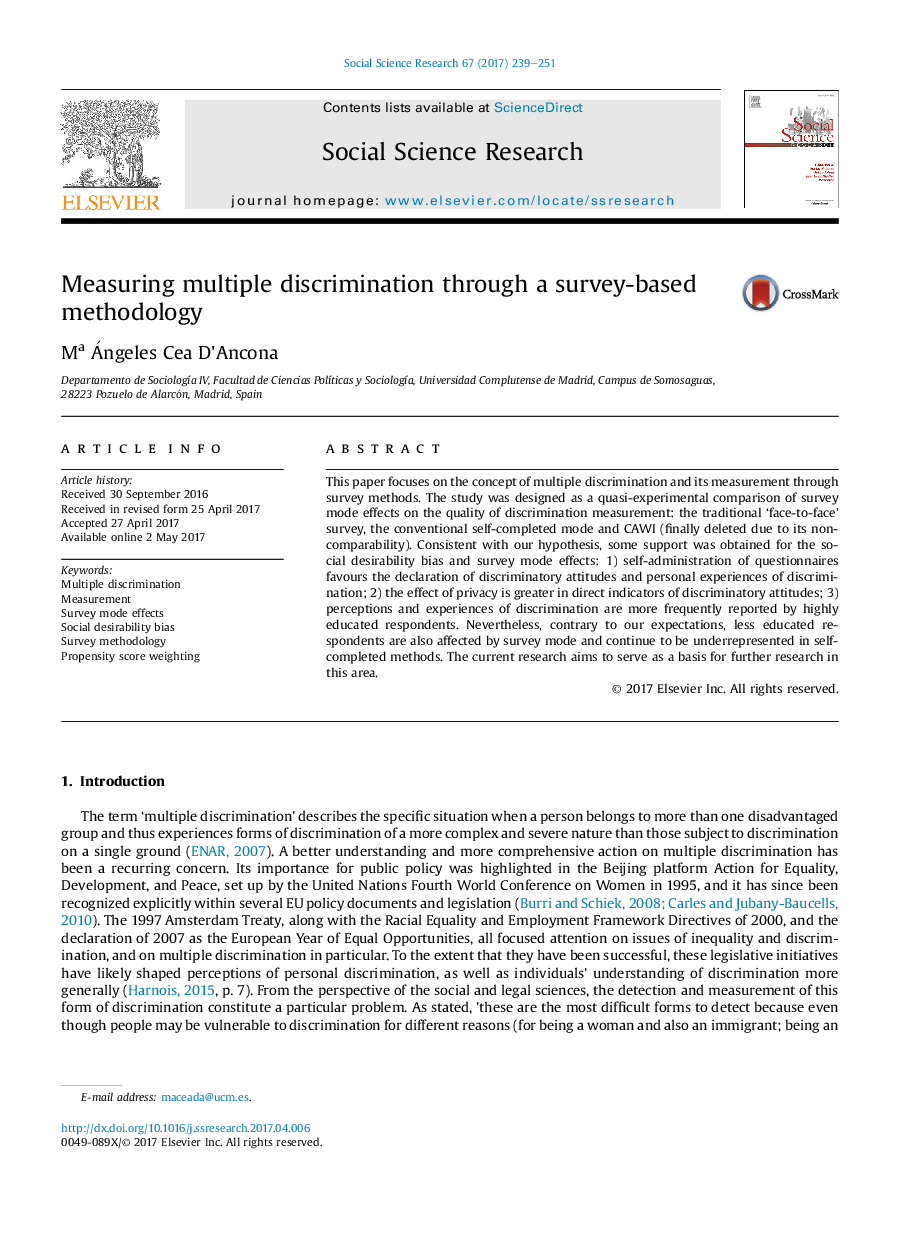| Article ID | Journal | Published Year | Pages | File Type |
|---|---|---|---|---|
| 5046976 | Social Science Research | 2017 | 13 Pages |
â¢Survey mode effects on the quality of discrimination measurement.â¢Self-administration favours the declaration of discriminatory attitudes and personal experiences of discrimination.â¢Direct indicators of discriminatory attitudes are the ones most affected by privacy.â¢Perceptions and experiences of discrimination are more frequently reported by highly educated respondents.â¢Less educated respondents continue to be underrepresented in self-administered methods.
This paper focuses on the concept of multiple discrimination and its measurement through survey methods. The study was designed as a quasi-experimental comparison of survey mode effects on the quality of discrimination measurement: the traditional 'face-to-face' survey, the conventional self-completed mode and CAWI (finally deleted due to its non-comparability). Consistent with our hypothesis, some support was obtained for the social desirability bias and survey mode effects: 1) self-administration of questionnaires favours the declaration of discriminatory attitudes and personal experiences of discrimination; 2) the effect of privacy is greater in direct indicators of discriminatory attitudes; 3) perceptions and experiences of discrimination are more frequently reported by highly educated respondents. Nevertheless, contrary to our expectations, less educated respondents are also affected by survey mode and continue to be underrepresented in self-completed methods. The current research aims to serve as a basis for further research in this area.
